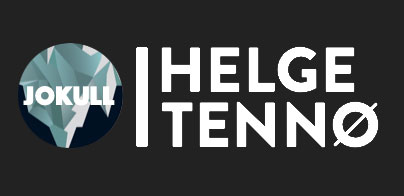Time is an unstoppable force
. And with it the mechanics and dynamics of cultures, societies and technology form a self-repeating pattern where new stuff gets created, used and thrown away.
This gives that the companies completely dominating our online lives today will eventually be replaced by either competing services or new habits
. The question is not when, but what will be their demise?
The present always seem like the end state that the past has been working for centuries to get to. But the present is not an immovable object; it is only two steps on the path to somewhere else. The sooner we realize this we start investing in future possibilities not falsely trying to ignore or constrain the effect of time.
Today Facebook is the new Google, and it looks nothing more than set to control the world, while Google seems constrained to its niche offerings. But just a couple of years ago this was not the case. We had a hard time imagining a world without Google as the dominate player. And there was mySpace and Amazon, not Facebook.
Facebook’s offer is broader than Google’s
– hypogonadismRather How long does sildenafil last?.
. It reflects the generation of online use we knew would emerge, while Google represents the generation we are leaving behind. The question is; has Facebook built the perfect platform? Will it beat the pattern?
Or is Facebook just at a point in its lifecycle where it looks like Google used to (or AT&T, Ford or Rockefeller)?

I have been lucky enough to receive an invitation from iCrossing to attend a panel at SXSW 2011. Where several questions will be asked in regards to the future of Facebook. An interesting panel both in regards to the future of Facebook itself, but also the larger understanding of brands in the online marketplace (will online change the pattern, or only increase its pace?)
Several interesting questions are posed:
- 1. Will the Law of Large Numbers apply to Facebook?
2. Will the Law of Innovation Saturation apply to Facebook?
3
. What could a Facebook competitor look like and what will it have to do?
4. How can Facebook fail?
5
. What must Facebook do to stay no.1?
And I would personally ad:
Has Facebook created the perfect platform? Giving them the opportunity to naturally copy the offering of start-up successes inside their existing offering, and by that shedding of the competition? (Twitter led to Facebook Social Updates and Foursquare led to Facebook Spaces).
Or will this spreading of Facebook, especially considering the “Like” button and Facebook Connect, create a brand that is everywhere and ends up going from a destination to an operating system, to ubiquity and invisibility?
Please give Heather White Laird, Aaron Gotwalt, Hannah Yeling and me a vote at the panelepicker.sxsw.com website. And ad your comment to the page!
In advance thank you! And I hope to see you all there..


given all the comparisons people are making when it comes to facebook (and in particular the one where they compare it to actual countries based on inhabitans) this book could prove to give some insight, from the past..
The Day of Empire by Amy Chua
gve me food for thought anyways ;)
Hi Niko, thanks for the reference :)
Best
Helge
Points to this post..Very informative and reliable and can be helpful to many..Thanks for sharing..